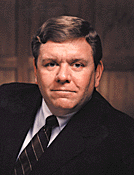 The other day, I was leafing through a USA Today in an airport when I stumbled upon an interesting article about “followership.” Not leadership — followership.
The other day, I was leafing through a USA Today in an airport when I stumbled upon an interesting article about “followership.” Not leadership — followership.
Followers know the inner intricacies of how an organization works, sometimes far better than the so-called leaders.
The role of the follower serves a unique purpose in an operation. While some people may think the term follower is derogatory, I beg to differ. A good follower not only performs his or her duties as directed, but can be a valuable asset to management.
Followers can help leaders create accountability in their organizations. If leaders make the effort to recognize and foster their followers, the followers will usually go out of their way to make sure the leader is successful.
There are two common axioms that contain the word “follow.” One is “follow the directions” and the other is “follow the leader.” I’ve noticed that cleaning organizations frequently have a conflict between what a leader says and the directions followers inherit from leaders. A make-it-up-as-you-go-along cleaning program is very hard on followers. Most people like their workplace to have clear directions and expectations.
Try to structure directions to followers. Provide formal job descriptions for them to peruse before they accept a job. Provide training programs and a game plan that everyone is aware of.
Make sure roles are clearly defined; make sure a process is in place. Most leadership analyses stress that followers need to be encouraged to see themselves as team members, not hired help. If your operation has gotten into a slump and workers don’t seem to be paying attention to their duties, then it’s time to reinvigorate the program by stressing teamwork. A team environment where everyone is responsible for the group’s accountability is a good way to motivate progress.
Avoid countermanding an order. The military rule is never countermand an order. The idea is that if a leader sends the followers out to do something and then rescinds the order, the followers have an excuse to second-guess orders.
At some period of time, every great leader was a great follower. If you want to identify who will make your operation successful in the long run, start to examine who your top followers are. Find out who takes their work to heart, who takes care of your operation and who sustains the boss’s credibility. Good followers can evolve into good leaders.
Pay close attention to your workers. The ones who ask the most questions, are frequently the most dependable, and the ones who don’t follow blindly will have a positive impact on your organization. Spotting these people early will help you hire, retain and produce good workers.
By tending to your strongest followers, you will make an investment in your organization’s future. If you’ve been wondering how your operation will evolve over the next 10 years, look into the eyes of your followers. They are the ones who are not only keeping the cleaning machine fine-tuned, but fine-tuned in the face of all challenges that lie ahead.
John P.Walker is the owner of ManageMen consulting services in Salt Lake City.
He also is the founder of Janitor University, a hands-on cleaning management training program.

 The Down and Dirty on Cleaning in Virus Season
The Down and Dirty on Cleaning in Virus Season How Surfactant Use is Expanding in Commercial Cleaning
How Surfactant Use is Expanding in Commercial Cleaning Operational Excellence Series 2025: Better Budgeting
Operational Excellence Series 2025: Better Budgeting